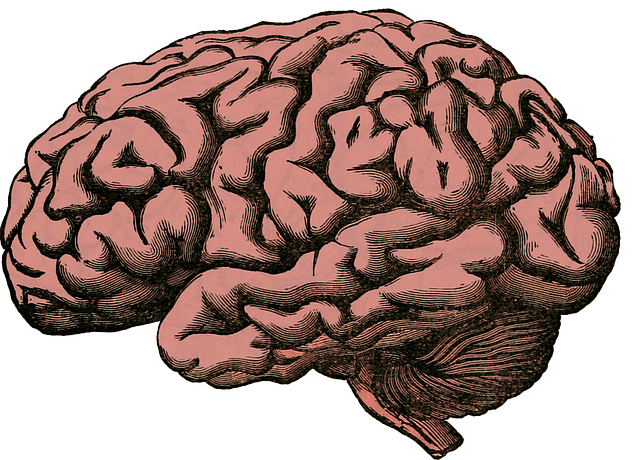Longmont Relationship Issues Therapy (LRIT) community outreach programs are key to enhancing mental wellness by addressing local needs. These programs offer direct therapy, workshops, and accessible resources like podcasts to empower individuals. By collaborating with schools, businesses, and community centers, LRIT identifies specific issues and creates tailored interventions for diverse demographics. Strong partnerships expand access, build resilience, and foster a supportive environment for navigating relationship challenges, ultimately strengthening the community's emotional well-being. Success is measured through long-term improvements in mood management and empathy, along with continuous program refinement based on feedback.
Community outreach programs play a pivotal role in addressing local needs, particularly in cities like Longmont where relationship issues thrive. This article delves into the multifaceted implementation of such initiatives, exploring their impact on urban communities. We examine strategies for effective therapy and support, emphasize collaboration with community organizations, and discuss evaluation methods to measure success in Longmont Relationship Issues Therapy. By understanding these elements, we can revolutionize local support systems.
- Understanding Community Outreach Programs: Their Role and Impact
- Identifying Local Needs: Assessing Relationship Issues in Longmont
- Designing Effective Program Strategies for Therapy and Support
- Building Partnerships: Collaborating with Community Organizations
- Measuring Success: Evaluation and Continuous Improvement in Longmont Relationship Issues Therapy
Understanding Community Outreach Programs: Their Role and Impact

Community Outreach Programs play a pivotal role in fostering connections and enhancing mental wellness within society, particularly in areas like Longmont Relationship Issues Therapy. These initiatives are designed to bridge the gap between mental health services and communities that may face barriers to accessing such resources. By implementing programs tailored to specific community needs, organizations can significantly impact individual lives and create a more supportive environment.
The role of these outreach programs extends beyond simply providing therapy; they aim to educate and empower individuals with valuable mental health knowledge and coping strategies. Incorporating activities like Stress Management workshops and Mental Health Education Programs Design can help communities develop resilience and improve overall mental wellness. Additionally, engaging formats such as Mental Wellness Podcast Series Production can make information more accessible and appealing, reaching a wider audience and promoting open conversations about mental health.
Identifying Local Needs: Assessing Relationship Issues in Longmont

In Longmont, identifying local needs involves a nuanced approach to understanding the unique relationship issues that permeate the community. These challenges often stem from complex social, economic, and cultural factors. Through collaborative efforts between local businesses, schools, and mental health professionals, a comprehensive assessment of these issues can be achieved. By engaging in regular conversations with residents and analyzing data from various sources, it becomes possible to pinpoint specific areas where intervention is most needed, be it improving communication within families or fostering healthier interactions in the workplace.
The importance of Longmont Relationship Issues Therapy cannot be overstated. This initiative should be underpinned by a focus on enhancing mental wellness, which can be facilitated through the production of a Mental Wellness Podcast Series that explores various aspects of emotional intelligence and positive thinking. Such platforms provide accessible resources for individuals seeking guidance on navigating personal relationships and improving their overall emotional well-being. By integrating these discussions into community outreach programs, Longmont can create a more supportive environment where residents are equipped with the tools necessary to address and overcome relationship challenges.
Designing Effective Program Strategies for Therapy and Support

Effective community outreach programs for therapy and support require a strategic approach to address various mental health concerns within the Longmont relationship issues therapy landscape. By understanding the unique needs of the local population, program designers can develop tailored interventions. This may involve segmenting the target audience based on age groups, cultural backgrounds, or specific challenges like stress management, burnout prevention, or confidence-building. Customizing services to these segments ensures relevance and encourages participation.
For instance, programs focused on mood management might offer group therapy sessions for adolescents, targeting common issues such as teenage angst and peer pressure. In contrast, adult populations may benefit from workshops on stress reduction techniques and burnout prevention, fostering resilience in a fast-paced world. Such strategic planning not only enhances accessibility but also maximizes the impact of outreach efforts, ultimately strengthening the community’s mental well-being.
Building Partnerships: Collaborating with Community Organizations

Building strong partnerships with community organizations is a cornerstone of successful community outreach programs. These collaborations can significantly enhance the impact and reach of therapy services, especially in addressing Longmont Relationship Issues Therapy. By working together, organizations can leverage shared resources, expertise, and networks to provide more comprehensive support. For instance, partnering with local schools, community centers, or faith-based groups allows for co-hosting events, sharing professional knowledge, and expanding access to mental health resources within the Longmont community.
This collaborative approach facilitates a holistic view of wellness, integrating not only therapeutic interventions but also initiatives focused on resilience building and crisis intervention guidance. By aligning with organizations that resonate with the Mind Over Matter principles, these partnerships can foster an environment where individuals are empowered to navigate challenges and strengthen their coping mechanisms. Such collaborations ultimately contribute to a more resilient community, better equipped to handle various relationship issues and personal struggles.
Measuring Success: Evaluation and Continuous Improvement in Longmont Relationship Issues Therapy

Measuring success is a critical aspect of any community outreach program, especially in the context of Longmont Relationship Issues Therapy. Evaluating the impact of therapeutic interventions involves a multi-faceted approach that goes beyond immediate outcomes. By utilizing various tools and techniques, therapists can assess the long-term benefits on participants’ emotional well-being promotion techniques. This includes tracking improvements in mood management and empathy building strategies employed by individuals within their personal relationships.
Regular feedback mechanisms, such as post-therapy assessments and follow-up sessions, play a pivotal role in this process. These methods allow therapists to identify areas of success and pinpoint challenges, facilitating continuous improvement in program delivery. By adapting their approaches based on these insights, the Longmont Relationship Issues Therapy initiative can enhance its effectiveness and better address the complex dynamics that often underlie relationship issues within the community.
Implementing community outreach programs, such as Longmont Relationship Issues Therapy, involves a multifaceted approach. By understanding local needs, designing effective strategies, building partnerships, and continuously evaluating progress, these initiatives can profoundly impact communities. This holistic process ensures that support is tailored to specific challenges, fostering stronger, more resilient neighborhoods. As highlighted in this article, successful outreach requires collaboration and an adaptive mindset, ultimately enhancing the well-being of all residents in Longmont and similar communities.














